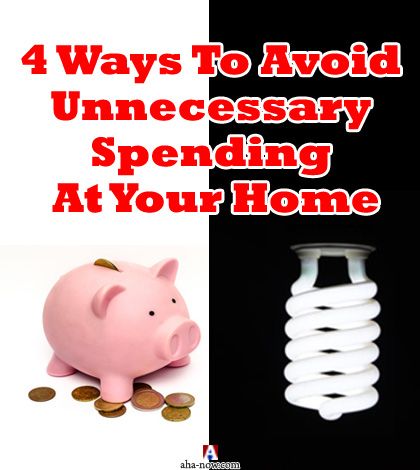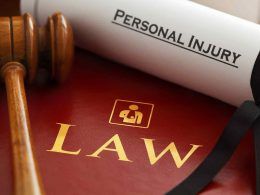Do You Know What Your Home Insurance Covers? Read This!

Table of Contents
Your home is as valuable as your life. If you get home insurance, you protect it from any potential issues. Just like life insurance, you should know what all your home insurance covers or in other words, how many ways does it protect your house. While different companies may cover different aspects, here are some common aspects generally covered by home insurance. ~ Ed.
While you may be handy with the tools and know how to maintain or build a home, you might not know the in’s and out’s of home insurance.
That’s okay, a lot of people don’t and it seems that this information should be more widely available.
For those that need to know what their home insurance covers, this is for you.
These are some of the ways your insurance protects your house and any potential issues that you could run into as a homeowner. Comparing home insurance is one way to decide on the right coverage needs that you can benefit from too.
4 Things That Your Home Insurance Covers
Here are the things that your home insurance covers:
Liability
What is a liability? Liability is the legal term for who is to blame when an accident occurs.
Homes can be our safe place, but unfortunately, they also happen to contain a lot of ways in which people can get hurt. Worst of all is when someone, but ourself get hurt.
Many home insurance policies should cover this, but it’s best to do some research and comparing to be sure.
Home insurance ensures that your house is protected in the instance that someone is injured in your home or on your property, and if they seek legal compensation. In short, this insurance covers a lawsuit if someone gets hurt in or on your home, or around the house.
It’s smart to protect your property to prevent these situations, but it is smarter to compare any insurance policies to see which ones have good liability claims protection.
Many people do not realize how their property can cause liability in cases of injury, but most home insurance policies include this because injuries can happen so often, like falling in a pool if it isn’t fenced off.
Home Damage
Probably the one most people think of first when it comes to home insurance coverage.
Home insurance covers damage that is done directly to your home. The ways your home can be damaged are plenty, and insurance coverage attempts to prevent you from having to foot the bill entirely, or at all.
Fire is one of the biggest causes of damage, smoke as well. Home insurance covers vandalism and weather conditions that are common like wind or rain/hail.
For severe damage, like natural disasters, additional insurance coverage is usually required, but not needed. This is only if your home is in an area that is likely to be damaged from these because they are common.
Structure protection
If your home has a detached garage, shed, or any other structure on the property you own, home insurance usually covers that as well. Like the insurance that covers your home, or dwelling, these structures are usually bundled in the initial policy.
These structures are usually significantly weaker in foundation than your actual house, so the damage done to them will be much worse. That is why they are covered by home insurance.
Although most policies cover property structures, check your own home’s policy to make sure your entire property is protected.
Personal property
Isn’t all of my property considered personal property? Not exactly.
Personal property is stuff or belongings you own that was purchased separately from the home. Stuff like laptops, phones, clothing or furniture fall under the category of personal property. These belongings are protected in case your home gets damaged, or broken into.
If a fire burned down the house, the insurance would cover the costs of the home as well as anything inside. Some personal property needs to be specifically covered under added insurance though.
Luxury items like jewelry, fur coats, or highly valuable artwork, can be insured individually or through an additional coverage plan. The reason for this is because of the delicate nature of these belongings. They are not common personal property so they would be unlikely to be in many homes.
Wrapping It Up
While you may know the in’s and out’s of how your home works and the handiness to keep your house up to shape, you may not know how your house is kept safe. For many, home insurance seems like a one-stop way to protect your entire home.
While this is slightly true, there are more details of how your house is protected. For starters, your home is protected by home insurance. This means the actual house itself is protected by the insurance policy from things like fire, wind, vandalism.
Liability is how insurance protects you from any legal action that can be taken against you. If someone hurts themselves on your property, or if your property damages someone else’s home (falling tree), you are to blame. Insurance can protect you from those fees.
The other protection your home receives is on structures like detached garages and sheds, which can also be damaged or lost entirely, as well as any personal belongings you own like electronics.
Now you know what your home insurance covers!
Over to you
What all does your home insurance cover? How has your experience been? Share in the comments.
Disclaimer: Though the views expressed are of the author’s own, this article has been checked for its authenticity of information and resource links provided for a better and deeper understanding of the subject matter. However, you're suggested to make your diligent research and consult subject experts to decide what is best for you. If you spot any factual errors, spelling, or grammatical mistakes in the article, please report at [email protected]. Thanks.











Thanks for letting me know that the different structures on my home are also covered by a homeowner’s insurance. We have a greenhouse and garage on our property and I wasn’t sure if these separate buildings would still be covered or if I would have to look for different insurance plans for each of them. It’s good to know that homeowners’ insurance covers all of them and that I can talk to insurance providers about them in case they are ever damaged.
Hi Harleena and Emily,
Á very timely post, Home Insurance is a must to everyone on this earth. As we are living in this busy and dangerous world unexpected things happen at any moment in our life. In such a situation if we have some kind of supporting insurance plan for the dependence is always good and a must.
Thanks, Emily for sharing the different features of the home insurance.
Keep writing.
I found this post on the pages of BizSugar and up-voted and commented.
Best
~ Phil